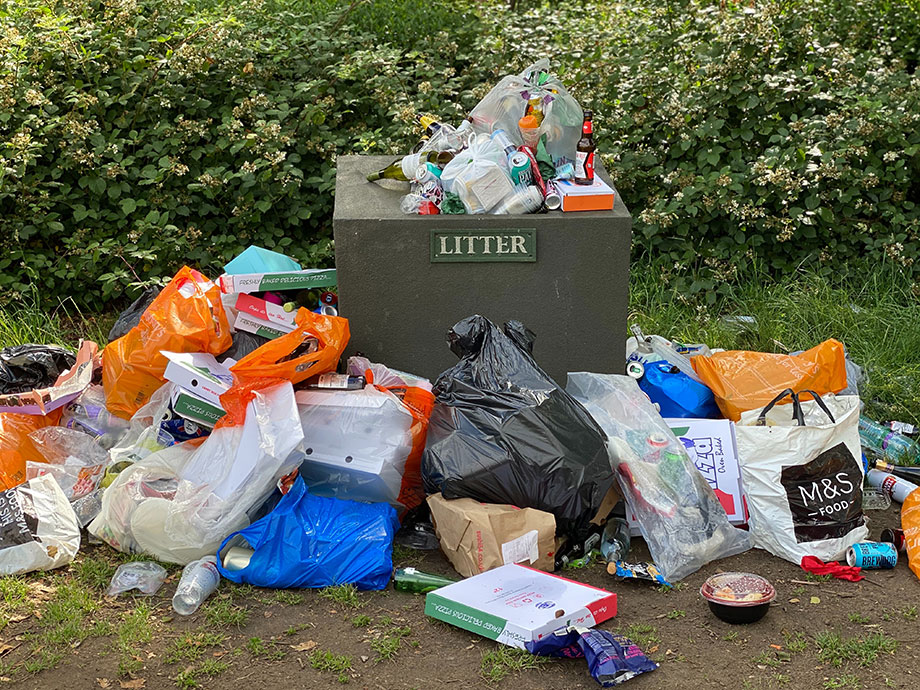This year, the eighth annual Great British Spring Clean takes place on 20 March. Together with the Great Big School Clean, the UK’s ‘biggest mass-action environmental event’ encourages participants to pick up bags of litter – especially from 17 March to 2 April. At the time of writing, the nation’s #LitterHeroes have pledged to pick up nearly 130 000 bags of litter in their communities – a simple act that generates pride in local areas and protects the environment.
Keep Britain Tidy has reported that only 43 per cent of adults feel proud of their communities. While everyone should pledge to get involved in community clean-ups as part of the Great British Spring Clean and other initiatives, there are simple ways councils can take action around waste and boost civic pride at the same time.
This is where smart bins and waste management come in. If our councils are to be perennial #LitterHeroes, smart solutions are essential tools in reducing litter, streamlining bin and recycling collections, and achieving costs savings for councils.
Derby is an excellent example of the implementation of smart bins – and the success of their programme supports the argument for uptake of these technologies in councils around the country.
Let’s take a closer look at how smart bin level monitoring solutions work and how councils stand to benefit from this component of smart council management – like the solutions on offer from Smarter Technologies Group.
HOW IT WORKS
A level sensor can be attached to bins, skips, or storage tanks – allowing for remote, real-time monitoring of waste levels. Alerts can be programmed around certain predefined events. This means, when a bin is full, a notification is sent to a remotely accessible dashboard. Data around the tilting motion also confirms that a bin or skip has been completely emptied.
The most effective smart bin solutions are simple to install, offer consistent reporting intervals on a range of different types of waste, and have long-lasting power sources. This information is conveyed over a secure, reliable data network to connected devices – accessible anywhere and at any time.
OPTIMISED BIN COLLECTIONS AND COLLECTION ROUTING
By monitoring bin levels in real time, less is left to chance when it comes to bin collections. Traditionally, it is a balancing act. Leave it too late and unsightly overflowing bins become a subject of complaint from the public. Overflowing bins also contribute to litter levels, which raise environmental concerns.
Conversely, collecting too often is an unnecessary drain on resources – with a cost around vehicle hours and human effort. There are also related issues such as the contribution of these garbage trucks to local traffic congestion, noise levels, air pollution levels, and – of course – emissions through wasteful, unnecessary bin checking.
Smart bin monitoring means collection routes are devised around actual need and are guided by data. This means less random checks by waste collectors and reduced complaints around overflowing bins.
Collection optimisation is also achieved by ensuring that waste is removed correctly the first time, which can be achieved through smart bin monitoring technologies like tilt sensors.
PREVENT BIN OVERFLOWS
Collection optimisation means prevented bin overflows. In itself, this unlocks a range of benefits – such as reduced vermin in neighbourhoods. The sight and smell of overflowing bins are also topics of complaint for local councils. Preventing bin overflows in the first place means pristine parks, streets, and public spaces – and happier citizens.
ENVIRONMENTAL AND SUSTAINABILITY ADVANTAGES
The global climate crisis means we need to examine existing behaviour and practices and make sustainable changes with the environment in mind. Eliminating wasted trips cuts back on emissions, wasted fuel, and air pollution.
It also ensures that waste is responsibly disposed of by professional waste management teams.
SAVE MONEY
Fine-tuning collections means money is saved on wages, vehicle maintenance, fuel and related costs.
DATA-INSPIRED PLANNING – AND UNDERSTANDING THE IMPACT OF INTERVENTIONS AND CHANGES
Historical data around waste trends helps to inspire waste management strategies. This covers everything from when, where, and how often collections should take place to plans for greener waste in future. As populations grow and councils become more developed, it is precisely this type of detailed data that will guide councils in resource acquisition and delegation – with consistent levels of service for a satisfied public.
Data insights also remove the anxiety around setting and achieving sustainability benchmarks. From single initiatives to long-term policy changes, data allows realistic goals to be set and KPIs to be recorded and monitored. This helps councils to gauge what works and what doesn’t – with minimal impact on the daily lives of the citizens they serve.
Let’s all join together to clean up our neighbourhoods and be a part of the Great British Spring Clean. Let’s take it a step further, too – working towards smarter waste management in our towns and cities.



















